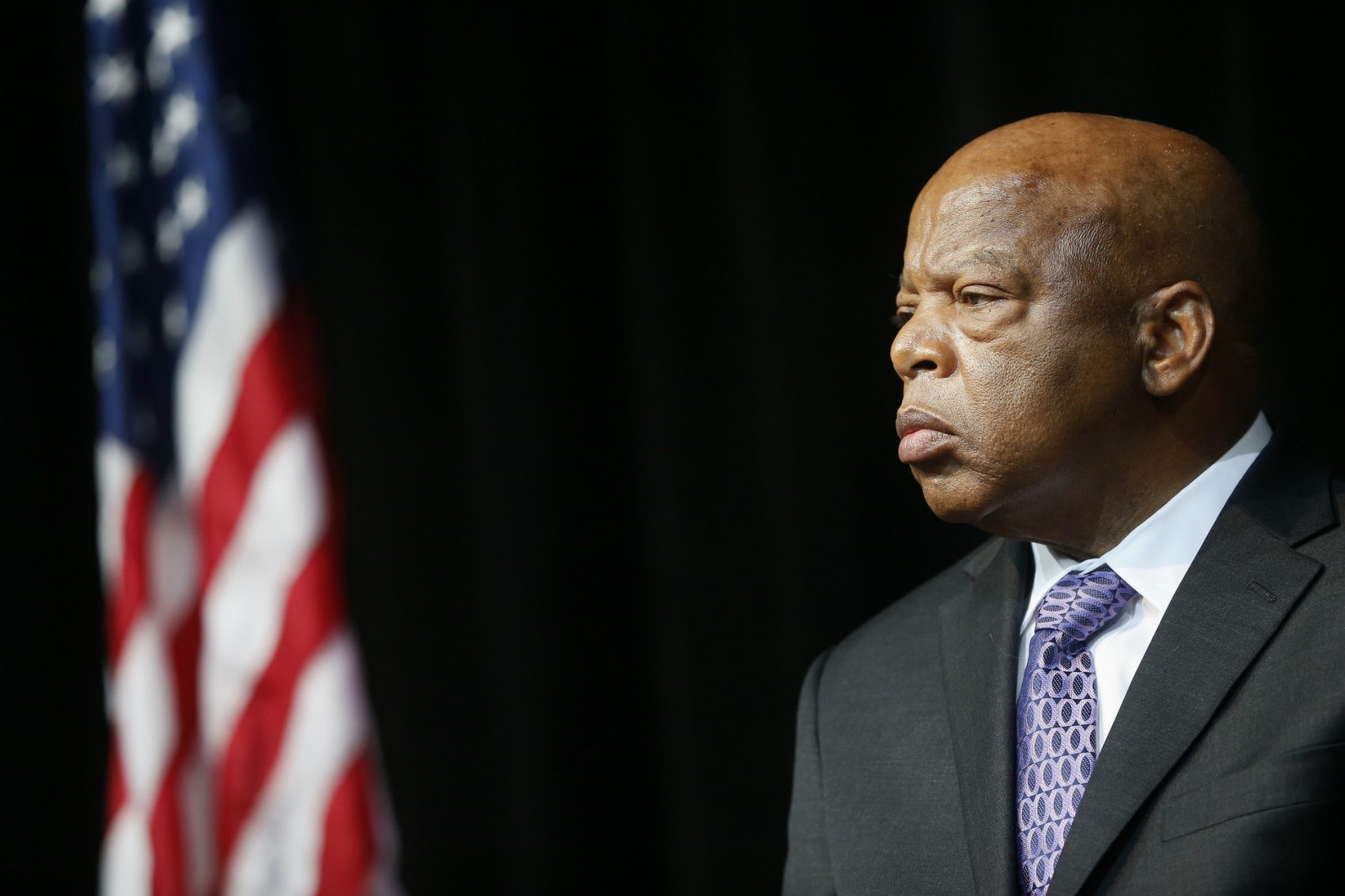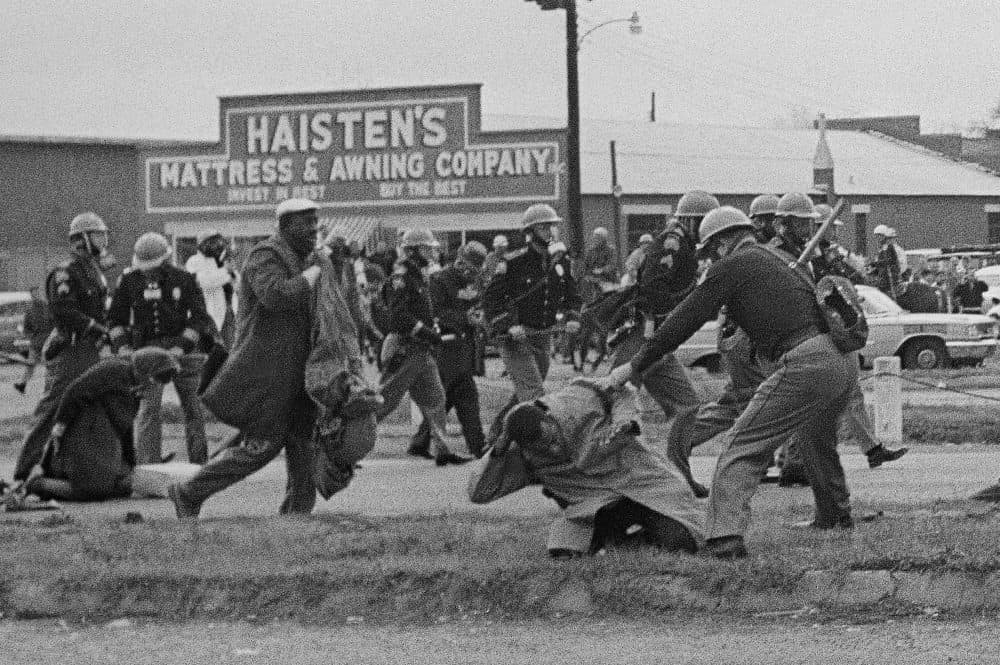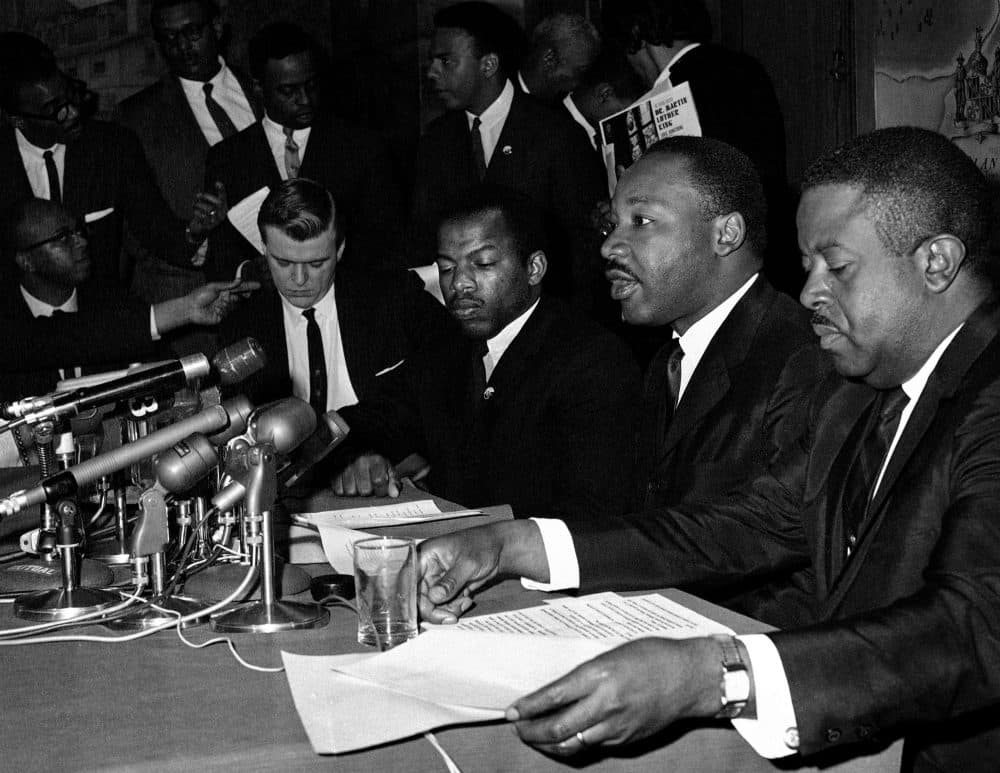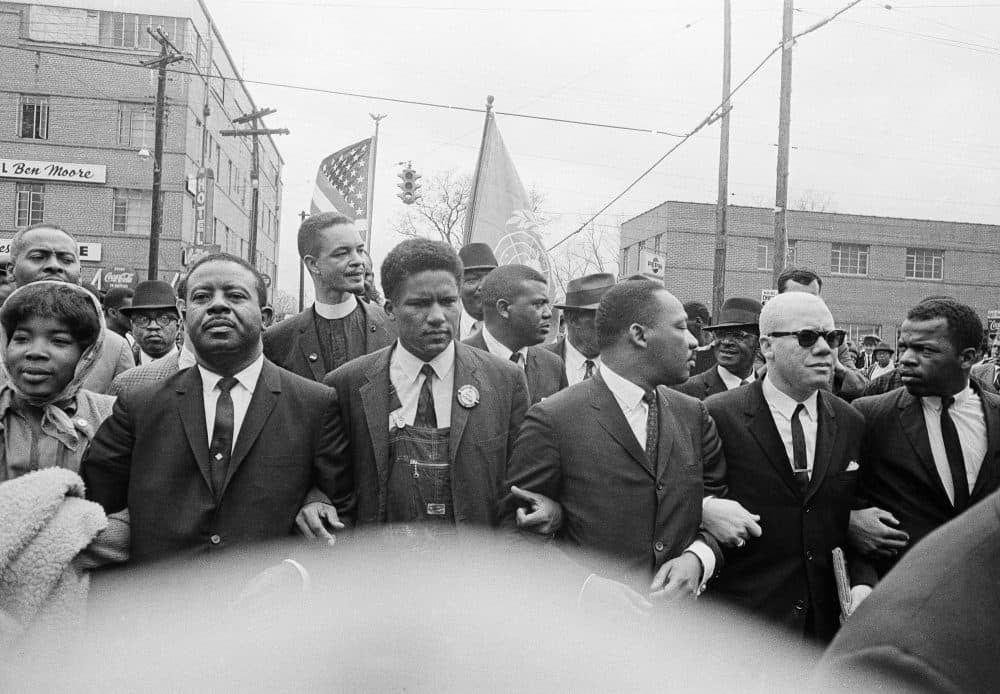Advertisement
John Lewis's Lifetime Of Action, And A History Lesson For Donald Trump

COMMENTARY
Donald Trump's angry Twitter rants are not new. Nevertheless, this weekend's attack on Congressman John Lewis of Georgia demonstrated — even for Trump — astounding ignorance and simple-minded, racially-driven thinking. His three Lewis-directed tweets show that Trump has no idea who John Lewis is, and, similarly, little if any appreciation for the meaning of this holiday weekend and the life and work of the man whose legacy it commemorates, Dr. Martin Luther King Jr.
On Friday, in an interview with Chuck Todd, following the FBI's briefing of the House about Russian influence in the Nov. 8 election, Lewis said that he would not attend the coming inauguration because he did not think Trump is a legitimate president. Trump's response on Saturday was predictable, but revelatory. Trump tweeted that Lewis was “talk, talk, talk — no actions or results. Sad!” He also described Congressman Lewis's district as being in "horrible shape and falling apart (not to mention crime infested)."

The truth is, of course, to the contrary. Lewis’s life is a story of action — not talk — and of accomplishment, resistance and courage. Lewis was one of the most important leaders of the civil rights movement in this country. He was one of the first Freedom Riders; one of the organizers of the March on Washington, where Dr. King gave his iconic speech; he coordinated the Mississippi Freedom Summer; and he led the marchers across the Edmund Pettus Bridge in Selma, Alabama, only to have his head fractured by police once on the other side. Those scars are still visible. At various times, Lewis was arrested and imprisoned as he worked against Southern segregation.
After serving on Atlanta's City Council, Lewis was elected to Congress in 1988 and has served there since. He represents a vibrant, diverse and affluent section of Atlanta that includes portions of Buckhead and Emory University.
Because Lewis is an African-American, Trump assumed that he represents a struggling, crime-ridden community. Thus, in two astonishing tweets, our president-elect demonstrated both his ignorance and his racism.

In apparent response to some of the outrage caused by his tweets, Trump scheduled a visit to the National Museum of African American History and Culture in Washington. He cancelled that visit on Sunday, perhaps when he learned about the exhibits that honor John Lewis.
When I was a student at Swarthmore College, I had the remarkable opportunity to learn about the civil rights movement from Vincent Harding, who was, among other things, an adviser and speechwriter to Martin Luther King. His course chronicled the civil rights movement in an effort, in part, to help his students confront the hard battles fought from the Freedom Rides through the Poor People's Campaign that was Dr. King's focus at the time of his assassination.
The heart of nonviolence, as Lewis demonstrated countless times, is action accompanied by a refusal to engage angrily with the inevitable assertion of power in response. When Lewis rode a bus across the South, he put himself at risk for his cause. When he sat in prison, he did so for his cause. When he marched across the bridge toward an inevitable beating, he did so for his cause. He did not hit back; his power came from the essential justice of his cause.

What cause has Donald Trump risked himself for? What about Trump's life gives him standing to attack John Lewis? The answer is obvious: nothing. Instead, Trump lashes out against what he does not understand. But not one of those lashes, not any of his tweets, not a single of the president-elect's lies rebuts the force of John Lewis's action.
On Inauguration Day, John Lewis will not attend the ceremony. He will let that action resonate so that, like the bus rides he took in his youth, his conduct will inspire us to look closely at who we are and what we choose to do.
Donald Trump has no interest in opening his eyes. But Friday, Americans have a choice. We can watch him take the oath of office in the midst of controversy for which we have no precedent, or we can link arms with John Lewis and find some real way to honor what's best about our country.
